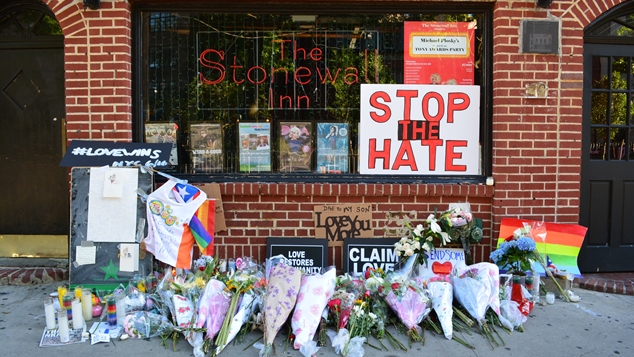Warning: This article contains mentions of anti-LGBT+ violence
About one out of 10 violent victimizations against LGBT people are hate crimes, according to a new study by the Williams Institute at UCLA School of Law.
LGBT people are nine times more likely than non-LGBT people to be victims of violent hate crimes. In addition, LGBT violent hate crime victims are more likely to be younger, have a relationship with their assailant, and have an assailant who is white.
Researchers analyzed hate crime data from the 2017-2019 National Crime Victimization Survey, the first nationally representative and comprehensive criminal victimization data to include information on the sexual orientation and gender identity of respondents. They defined violent hate crimes as victimizations on people’s bodies (such as assaults) that were motivated by bias and involved hate language, hate symbols, or some confirmation by police as evidence that the incident was a hate crime.
Results showed that, between 2017 and 2019, LGBT people experienced 6.6 violent hate crime victimizations per 1,000 people, compared to 0.8 victimizations per 1,000 people for non-LGBT people.
LGBT victims of violent hate crimes were more likely than LGBT non-hate crime victims to report problems in their social lives, negative emotional responses, and physical symptoms of distress.
“The rise of extreme anti-LGBTQ rhetoric and behaviors may embolden individuals to carry out hate crimes against LGBT people, so it will be important to track how our findings may change after 2019,” said lead author Andrew R. Flores, Affiliated Scholar at the Williams Institute.
“It is vital that law enforcement and anti-violence programs are trained and prepared to effectively serve the unique needs of LGBT victims.”
Key findings also found that about 9% of all violent victimizations against LGBT people are hate crimes, compared to 4% of violent victimizations against non-LGBT people; the majority of LGBT violent hate crime victims are women (61%) and the majority of offenders are male (74%); LGBT victims of violent hate crimes are about five times more likely than LGBT victims of other types of violent crimes to feel angry, violated, and unsafe, and four times more likely to feel anxious, sad, or depressed, as a result of the victimization; and fewer than four out of ten LGBT violent hate crime victims sought professional help for their emotional (39%) or physical (35%) problems related to the victimization.
“Hate crimes have adverse physical and psychological effects on LGBT victims that are greater than the effect of similar crimes not motivated by hate,” said study author Ilan H. Meyer, Distinguished Senior Scholar of Public Policy at the Williams Institute.
“These findings highlight the importance of developing and strengthening federal, state, and local interventions to protect LGBT people from victimization and providing support and services to mitigate the ill effects of hate crime victimization.”
Read more about the study here.
Image: Shutterstock
Do you need some support?
If you are struggling with anxiety or depression, support and counselling are available from:
QLife: 1800 184 527 / qlife.org.au (Webchat 3pm – midnight)
QLife are a counselling and referral service for LGBTQIA+ people.
DISCHARGED: info@discharged.org.au / discharged.org.au
Discharged is a trans-led support service with peer support groups for trans and gender diverse folks.
Lifeline: 13 11 14 / lifeline.org.au
Beyondblue: 1300 22 4636 / www.beyondblue.org.au
You can support our work by subscribing to our Patreon
or contributing to our GoFundMe campaign.






